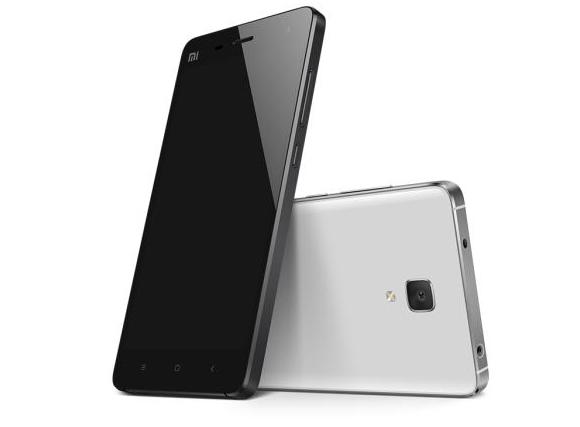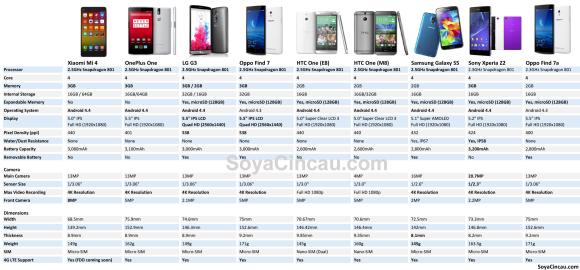The Xiaomi Mi 4 was just announced a few moments ago and it boast an upmarket design with updated hardware. While it isn’t packing a higher resolution Quad HD display or a newer generation of Snapdragon 805 processors, Xiaomi is calling it the fastest smart phone yet. To see how it compares with the rest of the Android players, we stack up the Mi 4 numbers against the OnePlus One, LG G3, Oppo Find 7, HTC One M8, Samsung Galaxy S5 and the Sony Xperia Z2.
Internally, the Mi 4 matches up with other flagship models that were launched in the last quarter with the usual 2.5GHz Quad-Core Snapdragon 801 processor, 3GB of RAM and comes with a choice of 16GB and 64GB storage capacity. Like its previous Mi 3 smart phone, it still lacks microSD expansion and the only exterior slot is for a micro-SIM card.
UPDATE: Check out our spec comparison between the Mi 4, Mi 3, Redmi Note and Redmi 1S over here.
The front display is a similar Full HD 5-incher but Xiaomi has improved its single-handed usability by narrowing its bezels and overall width. Compared with the other models, the Mi 4 has the smallest width and shortest height. Thickness wise, the Mi 4 is on par with OnePlus One and the LG G3 at 8.9mm. In terms of weight, the metal body construction does add to the bulk, weighing in at 149 grams which surprisingly is the same as the LG G3. Both of them are negligible 4 grams heavier than the Galaxy S5 and HTC One E8.
In the camera department, the Mi 4 is now sporting an updated 13MP IMX214 Sony sensor which is similarly used on the Oppo Find 7 and OnePlus One. For taking Selfies, it gets the biggest pixel count here with a wide angle 8MP camera.
At the time of writing, the Mi 4 is available in 3 versions – 3G (CDMA), 3G (WCDMA) and 4G (TDD-LTE/TD-SCDMA). The Mi 4 4G model isn’t compatible with our Malaysian 4G operators as we are using the FDD-LTE standard. However Xiaomi promises that a FDD-LTE variant will be introduced later this year and hopefully we won’t have to wait too long for that to be released here. So if you’re planning to get one directly from China, you better get the 3G WCDMA version. Read our Mi 4 announcement post for further details.
So which flagship smart phone would you go for? Leave your thoughts in the comments below.








